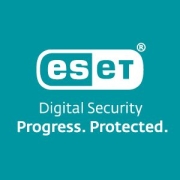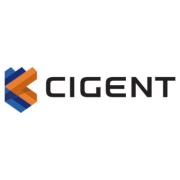Endpoint Encryption is a vital security measure that ensures data remains protected on endpoint devices by encrypting files and drives, safeguarding sensitive information from unauthorized access and breaches.
Endpoint Encryption involves the use of algorithms to secure data on devices such as laptops and smartphones, preventing access from unauthorized users. It is crucial for organizations to protect their data integrity and confidentiality, safeguarding information whether the device is online or offline. The solution is particularly useful in facilitating compliance with regulatory standards by providing encrypted pathways for sensitive data transmission and storage.
What key features should be considered in Endpoint Encryption solutions?In financial services, Endpoint Encryption is widely used to protect customer data and transactions. Healthcare organizations rely on encryption to safeguard patient information and comply with data privacy regulations. Educational institutions use these solutions to secure personal information of students and staff.
Endpoint Encryption provides organizations with a fundamental layer of security, ensuring that sensitive data is protected across all endpoint devices. This is particularly essential in modern business environments where data breaches can have significant financial and reputational consequences.
| Product | Market Share (%) |
|---|---|
| Microsoft BitLocker | 34.6% |
| ESET Endpoint Encryption | 16.5% |
| Symantec Endpoint Encryption | 9.4% |
| Other | 39.5% |



































Endpoint encryption is the encryption of data used to protect sensitive information as it moves from one endpoint to another. To encrypt information, data is encoded or scrambled, so that it can not be deciphered, read, or usable unless a user has its unique decryption key. Endpoint encryption secures an operating system from corrupted boot files to ensure unauthorized users cannot access protected data. Some of the most common information that is usually encrypted include bank account numbers, healthcare files, social security numbers, and home addresses.
Endpoint encryption is important because it provides layers of defense that safeguard organizations from cyber threats, large or small. It provides an additional layer of visibility into the threat landscape to understand the root cause of endpoint attacks. The goal of endpoint protection and encryption is to provide security from malware attacks, to gain insight into malicious activities and behaviors, and to provide the capabilities needed to investigate and remediate threats and incidents.
End-to-end security is the method by which endpoint encryption and security measures are used to protect endpoints when communications are transmitted from one end to another. It adds an additional security layer to an organization's security infrastructure. End-to-end security is a key component of a business's infrastructure because it defends against data theft, prevents data loss, and protects systems and servers from external attackers.
A virtual private network, or VPN, is encrypted but does not provide end-to-end encryption. A VPN is an encrypted tunnel that connects your computer to a network and ensures that no one who intercepts your internet signal can decode that data. It uses different types of encryption methods, including public-key encryption, symmetric encryption, AES encryption, and transport layer security. It encrypts your connection from your device to the VPN server, but does no more than just that.
Endpoint Encryption secures data by encrypting files on devices used by remote workers. This means that even if a device is lost or stolen, the encrypted data remains protected and unreadable without the correct decryption key. It ensures sensitive business information is safeguarded against unauthorized access, providing peace of mind for remote work environments.
Can Endpoint Encryption work with existing security infrastructure?Yes, Endpoint Encryption solutions are designed to integrate with existing security architectures. They can be deployed alongside current antivirus software, firewalls, and network security measures. This compatibility ensures a holistic approach to security, reinforcing data protection without disrupting established workflows or systems.
What are the most common challenges in implementing Endpoint Encryption?Common challenges include ensuring compatibility with legacy systems, managing encryption keys, and training users on encryption protocols. Organizations may also face difficulties with initial deployment if they lack IT expertise. However, many vendors offer support and comprehensive guides to simplify the implementation process, ensuring minimal disruption.
How does Endpoint Encryption affect system performance?Modern Endpoint Encryption solutions are optimized to minimize impact on system performance. While encryption adds some processing overhead, most users experience negligible slowdowns. Advanced solutions use efficient algorithms that provide robust security without compromising speed, allowing users to work seamlessly even during encryption and decryption processes.
How can Endpoint Encryption help with regulatory compliance?Endpoint Encryption assists in achieving compliance with data protection regulations like GDPR, HIPAA, and CCPA by ensuring that sensitive data is stored and transmitted securely. By encrypting data, organizations can demonstrate their commitment to protecting personal and confidential information, reducing the risk of legal penalties associated with data breaches.